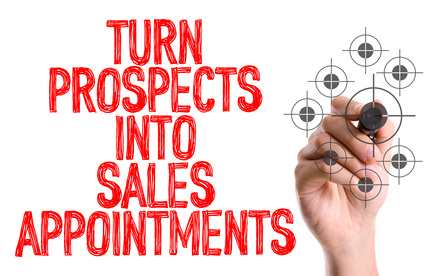The Power Of An Annual Client Event
This is a great time of year and the upcoming holiday season for an annual client event. A client appreciation event is an opportunity to strengthen relationships, show gratitude, and create lasting memories.

For real estate agents, these events can also serve as a powerful marketing tool, helping to generate referrals and attract new listings from your database. By hosting a thoughtful and engaging appreciation party, you not only express your gratitude but position yourself as a trusted resource in your clients’ lives.
This is especially important for first-time homebuyers who may need additional support and homebuyer education. It may not be about education but showing that it’s available in a friendly context can work wonders.
How Do You Throw a Client Appreciation Party?
Throwing a successful client appreciation event is all about early planning, leaving a lasting impression, and engaging with your database in a meaningful way. Start by choosing a unique venue that offers a memorable experience. Next, consider the space and logistics—secure your venue and send out invitations well in advance.
- A Memorable Experience: Hosting a holiday client appreciation party at your office is nice, but it doesn’t exactly scream “memorable experience!” And while hosting a holiday movie screening is a fun and popular idea but it doesn’t allow you the opportunity to talk and connect. It’s all about leaving a lasting impression. “Your holiday party is about rewarding your clients for being a part of your business and your life. Come up with something that’s going to reward them.
- Get a Greeter: If you want your party to serve its intended purpose and be worth the money for you, you need to be there. By that I mean, get a greeter. You can’t talk with people and nurture relationships if you’re standing at the door all night. A greeter helps guests navigate the reception area, provides them their ticket or wristbands, and helps them with whatever else they need. Free up as much of your own time as possible so that you can simply connect with your past clients and the people they bring. The things you learn here can inform your touches later such as pop-bys, closing gift ideas, or other thoughtful gestures.
- Think About Food: You don’t need to serve a lavish meal to impress your guests. Instead, focus on carefully selected appetizers that cater to both kids and adults. Donna’s party features a charcuterie board for adults and kid-friendly options like grilled cheese and soup. She also adds a fun twist with a hot chocolate bar, creating a unique experience that everyone can enjoy.
- Event Promotion & Plan Early: Timing is everything when it comes to scheduling and promoting your party. Thursday is a great day to avoid conflicts with other holiday gatherings. Communications go out three weeks in advance, starting with an e-vite and followed by text messages to all her past and current clients, ensuring they know that they can bring whomever they’d like but must RSVP them.
- It’s About Appreciation: While some agents may feel inclined to ask for referrals during their appreciation parties. It’s about showing appreciation and genuinely thanking them for working with you, not turning a thoughtful event into a reciprocal deal.” This strategy not only fosters goodwill but also naturally leads to referrals without the need for direct requests.
- Use for Marketing: Successful client appreciation holiday parties are a goldmine for marketing. Hire a videographer to capture the event, including client testimonials, which you then share online and in email newsletters. This not only showcases her commitment to your clients but also serves as a powerful marketing tool for attracting new business.
Client Appreciation Event Ideas
Pay attention to what unique gems your city has to offer. Getting your clients tickets to Disneyland would obviously be a memorable experience but might not necessarily be a wise financial decision. You’d be surprised by the great experiences that can be had on a reasonable budget.
- Local Art Galleries: Rent out a local art gallery for an evening. Clients can enjoy the art while mingling, and you can even feature local artists to enhance the community feel.
- Community Centers: Utilize a community center that offers space for gatherings. This is a cost-effective option that can be decorated to fit your theme.
- Winery or Brewery: Consider hosting your event at a local winery or brewery. Many offer tasting rooms and scenic views, providing a relaxed environment for your clients to enjoy. Some will even offer enough kid-friendly options and entertainment to make it a family-friendly event.
- Outdoor Parks: If the weather permits, an outdoor picnic, or barbecue in a local park can be a fun and casual way to connect with clients. Bring in food trucks or caterers for a unique twist.
- Culinary Classes: Host a cooking class at a local culinary school or restaurant. This interactive experience allows clients to bond over food while learning something new.
- Historic Sites: Look for historic homes or buildings in your area that offer event space. The unique setting can provide a memorable backdrop for your appreciation event.
- Cruise or Boat Tour: If you’re near a body of water, consider a sunset cruise or boat tour. This offers a relaxing and scenic way to celebrate your clients.
Feel free to reach out and share some of your amazing client event ideas and experiences. I trust this inspires you to host your first and not last event yourself.
Strength and Courage,
Wade


















